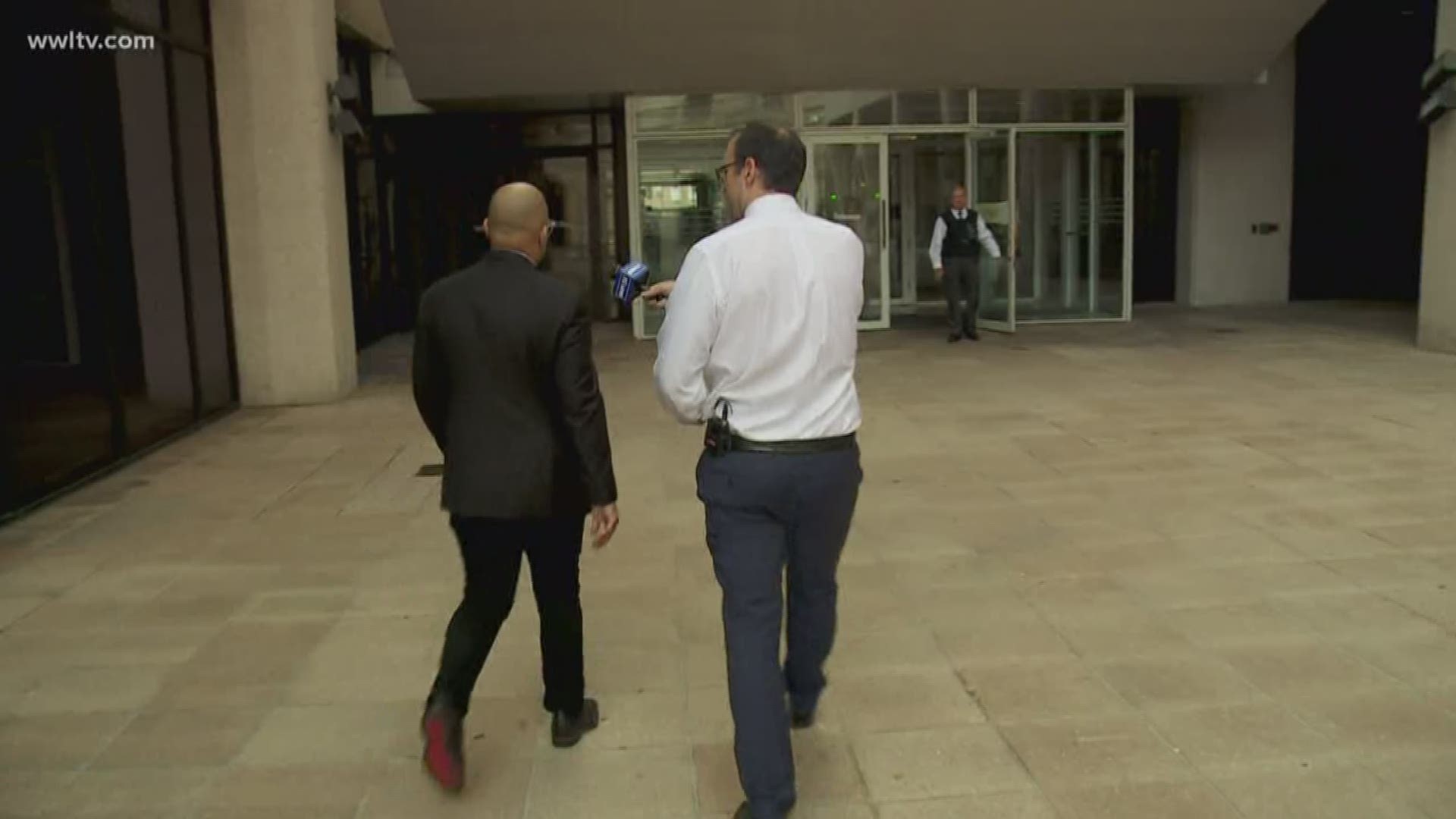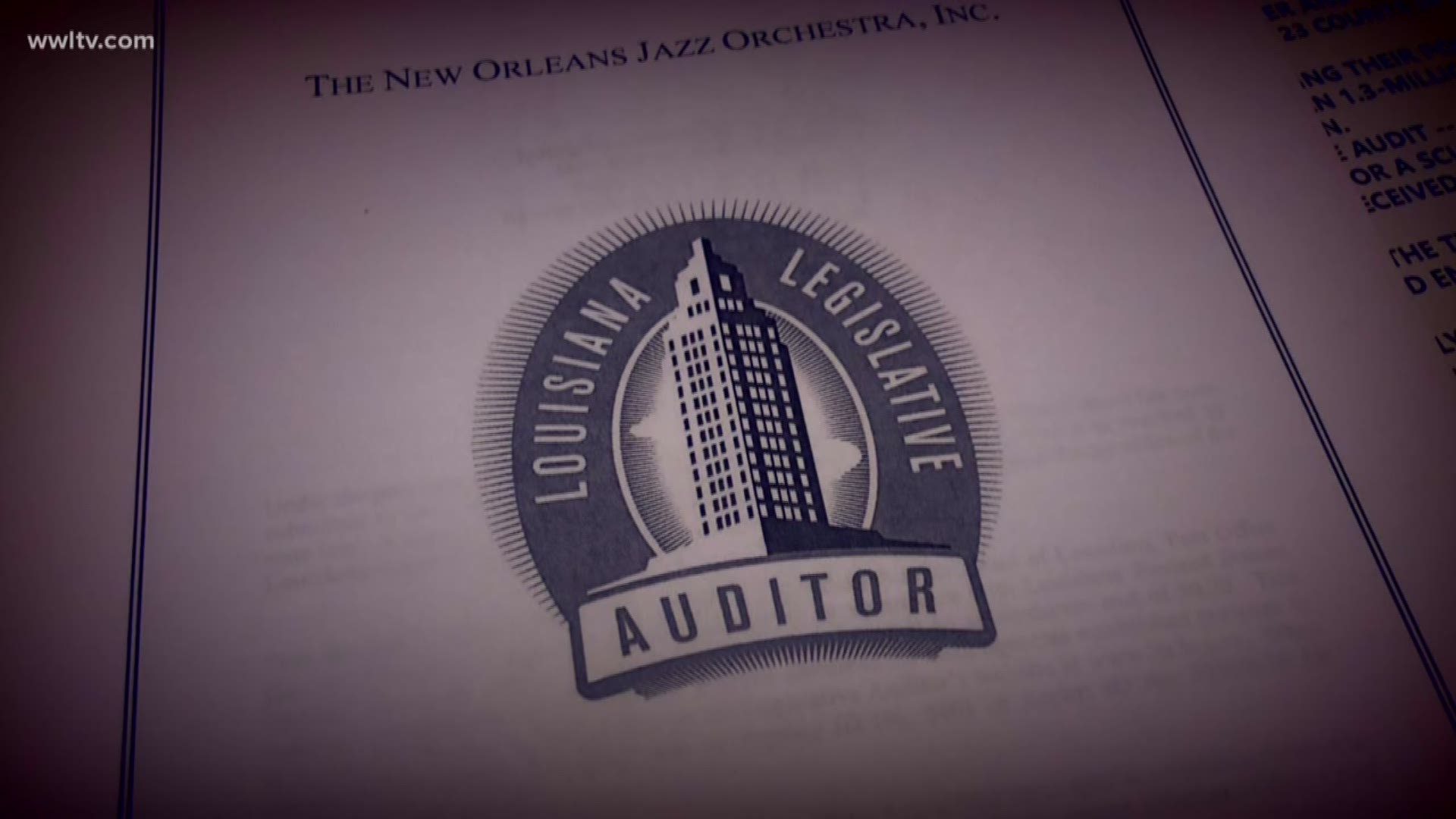NEW ORLEANS — Three months before their scheduled federal trial on 23 counts of conspiracy, fraud and money laundering, lawyers for Grammy-winning trumpeter Irvin Mayfield and his longtime partner tried to convince a federal judge Wednesday to keep out of evidence audio recordings an investigative auditor secretly made of their clients in 2016 and 2017.
Legislative Auditor investigator Brent McDougall admitted he made three secret recordings of Mayfield and partner Ronald Markham while questioning them about public money received by their nonprofit New Orleans Jazz Orchestra.
He later turned over transcripts of those recordings along with documents he collected from Mayfield and Markham to the FBI, but he claimed his investigation was independent of the federal one and not coordinated with the FBI or U.S. attorney's office.
Markham’s defense attorney, Sara Johnson, and Mayfield’s attorney, Federal Public Defender Claude Kelly, argued McDougall was acting in coordination with the FBI to help the federal investigation and should have disclosed his intentions to Markham and Mayfield before they answered his questions.
They pointed out that Mayfield and Markham were the only ones of dozens of witnesses McDougall interviewed whom he recorded. McDougall said he did that simply because Mayfield and Markham were the leaders of the nonprofit he was auditing, the New Orleans Jazz Orchestra.
Johnson and Kelly also questioned if McDougall tricked Mayfield and Markham into thinking their answers would be kept confidential.
“This information is confidential?” Markham asked McDougall at one point in the interview transcript.
“Absolutely,” McDougall said before explaining the only way his work product would be shared would be if it was subpoenaed, and his office usually fights subpoenas.
The federal grand jury did subpoena McDougall’s records shortly after he conducted the first interview of Markham, and his office turned over those records without fighting to protect them, including the transcripts of the interviews with Mayfield and Markham.
“This is so untruthful!” Kelly exclaimed while questioning McDougall.
McDougall said he was acting within the scope of his own investigation, not at the direction of the federal government. He testified he was not initially intending to ask Mayfield and Markham about more than $1.3 million in private money they helped funnel from the New Orleans Public Library Foundation, where they both had served as president, to the jazz orchestra that paid them each six-figure salaries.
In fact, he openly told them in the interview transcripts that the library money was private money and therefore not part of his audit.
But, McDougall said, he later spent significant time asking them about that money from the Library Foundation because he learned it had been improperly intermingled with public money the jazz orchestra received from the city of New Orleans and the state legislature.
McDougall admitted that he lied to Markham at one point when he told him he didn’t know why the Legislative Auditor was looking into the Jazz Orchestra’s spending. McDougall said he initially told Markham the auditor’s office investigates complaints and requests, but when Markham kept asking why his nonprofit was selected for audit, McDougall said he didn’t know.
McDougall admitted on the stand that when he said that, he did in fact know that the Metropolitan Crime Commission had filed a formal complaint to the Legislative Auditor about the Jazz Orchestra in June 2015.
That was about a month after WWL-TV broke the story about the transfer of the library donations to the jazz orchestra. The Crime Commission complaint specifically focused on more than $1 million in state aid the Jazz Orchestra received to build the New Orleans Jazz Market in Central City.
The auditor went on to report that additional public money, city-controlled grants through the Wisner Trust, which were intended for building a sculpture garden in Armstrong Park were instead used to pay Jazz Orchestra expenses.
The auditor found that after money from the city dried up, Mayfield and Markham used private donations to the city’s public libraries to back-fill the sculpture garden expenses. That’s now a key part of a federal indictment against the duo.
Prosecutors argued that Markham and Mayfield should have known that they were under federal investigation by the time McDougall asked to interview them because of WWL-TV's reports that a probe was under way.
According to a transcript of McDougall’s second interview with Markham shown in court Wednesday, McDougall specifically referenced Markham’s interview with WWL-TV in which he claimed the library donations went to build the New Orleans Jazz Market music venue and club.
“Those dollars went into this facility,” Markham told WWL-TV in May 2015. “You look at the computer screens, that are going to come in here, and this wood, it looks great. It looks reclaimed, like it's cheap. It's not. Money. Stuff. The seats, the lighting, the air conditioning, I mean, this is like real stuff.”
But McDougall’s audit report concluded the library money actually went to pay for the sculpture garden project. Federal prosecutors allege Mayfield and Markham lied to other Library Foundation board members about what the money would be used for, instead using a large chunk of it to pay their own salaries and for luxurious hotel stays, booze and limo service for Mayfield.
Testimony from McDougall, two FBI agents and Metropolitan Crime Commission chief Rafael Goyeneche lasted all day Wednesday. U.S. District Judge Jay Zainey was not expected to rule for at least a few more days on whether the auditor's recordings can be used at trial in January.
FBI Agent Courtney Lantto followed McDougall on the witness stand and some of her testimony appeared to contradict McDougall's. She said she first talked with McDougall about the case in June 2015, shortly after the WWL-TV stories began and immediately after Goyeneche filed a formal complaint to the Legislative Auditor about the Jazz Orchestra.
McDougall testified that he didn't reach out to Lantto to see if his audit investigation would have any unintended impact on the federal probe until February 2016.
Goyeneche testified that the Crime Commission first looked into the library donations going to the Jazz Orchestra in 2013 and referred the case to the FBI and the New Orleans Inspector General's Office. Lantto testified the FBI opened its own investigation shortly after that, in 2013.
The defense questioned Goyeneche about an email he sent to McDougall in August 2016 with invoices attached for an $18,000 stay at the Ritz-Carlton Hotel in New York by Mayfield and his Jazz Orchestra assistant, which included limo rides, room service liquor and a $1,400 breakfast, all charged to the Library Foundation.
But those invoices had already appeared in a WWL-TV report in June 2016 and the station reported they were openly provided by the new leadership of the Library Foundation itself.
McDougall interviewed Markham for the first time in September 2016 and recorded the conversation. He and the Legislative Auditor's Office received the first grand jury subpoena for audit records in October 2016.
The subpoena clearly named Mayfield and Markham as subjects of the grand jury probe, and McDougall acknowledged that from that point on he knew his recordings of Mayfield and Markham would likely be turned over to the FBI, but he insisted he would have recorded Mayfield and Markham and asked them the same questions “if there had not been a federal investigation going on.”
Zainey addressed McDougall from the bench and told the witness that he didn’t like the fact that he recorded a cellphone conversation with Mayfield in 2017 without informing him, even though he has a legal right to do so.
“I’ll be honest with you,” Zainey said. “That rubs me the wrong way.”
McDougall recorded Mayfield in November 2017. Lantto, the FBI agent, testified she didn't need McDougall's audit work or his interviews with Mayfield and Markham to conduct her investigation. But under questioning by Kelly, she acknowledged that McDougall's information was helpful.
She also acknowledged she would not have been permitted to secretly record Mayfield in November 2017 when McDougall did because by then Mayfield was the target of a federal investigation.
Lantto said she was never able to interview Mayfield before he was indicted just a month later, in December 2017.


